Highlights—
|
Struggling with interview anxiety? For an 18-year-old, AI can now practice mock interviews, draft your perfect answer, and judge your body language for free.
We’ve ranked the best free AI interview coaches to help you nail job interviews in 2025 — whether you’re preparing for behavioral questions, technical rounds, or HR screenings after testing 30+ AI tools.
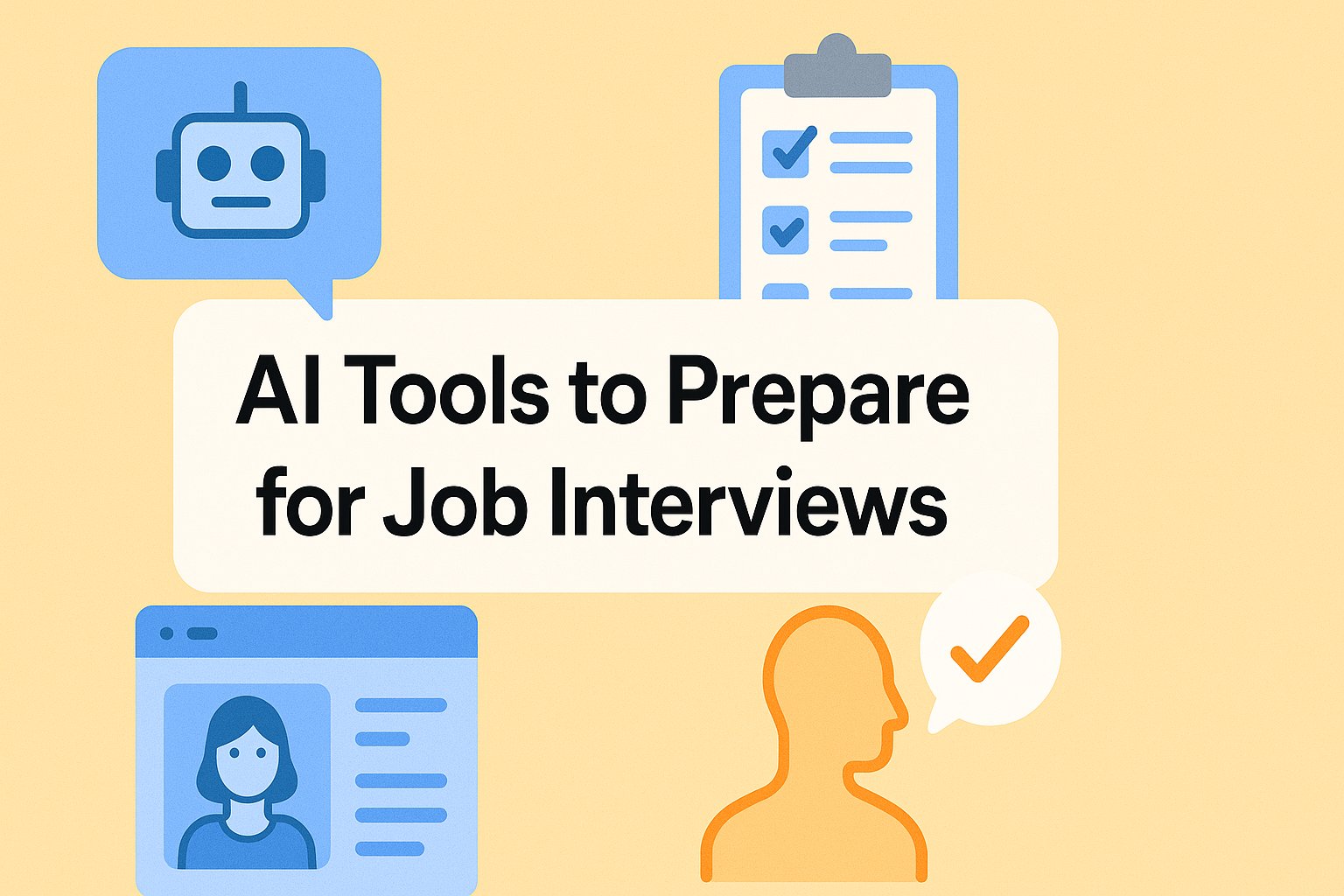
Do Interviewers Know If You Use ChatGPT?
Interviewers do not actually know if you have used AI, but they might think so, especially when your answers seem too polished, generic or do not reflect the style in which you talk and when providing follow-up questions.
Follow the AI, rewrite the changed words in your language and use it as a base to practice naturally articulating your answers.
Do AIs Really Help with Cracking Interviews?
Yes, AI can assist you in acing interviews by recommending questions, organizing responses and practicing simulations. Prepare with AI, then recast the answers in your voice and practise saying them aloud for a more conversational delivery.
How We Tested These AI Interview Tools
(Because not all “AI interview prep” tools deliver real value…)
We based the evaluation of each of the tools on actual cases:
- Mock Interviews – AI simulating FAANG, startup, and corporate hiring managers
- Answer Optimization – Improving STAR method responses
- Body Language Analysis – Webcam-based posture, eye contact, and vocal feedback
- Company Research – AI summarizing Glassdoor/LinkedIn interview trends
Testing Criteria:
- Accuracy – Does it ask industry-relevant questions?
- Customization – Can you tailor it to your role (tech, marketing, healthcare, etc.)?
- Feedback Quality – Actionable insights vs. generic advice
- Free Tier Limits – No hidden paywalls
8 Best Free AI Tools for Interview Prep
1. InterviewAI (Best for Realistic Mock Interviews)
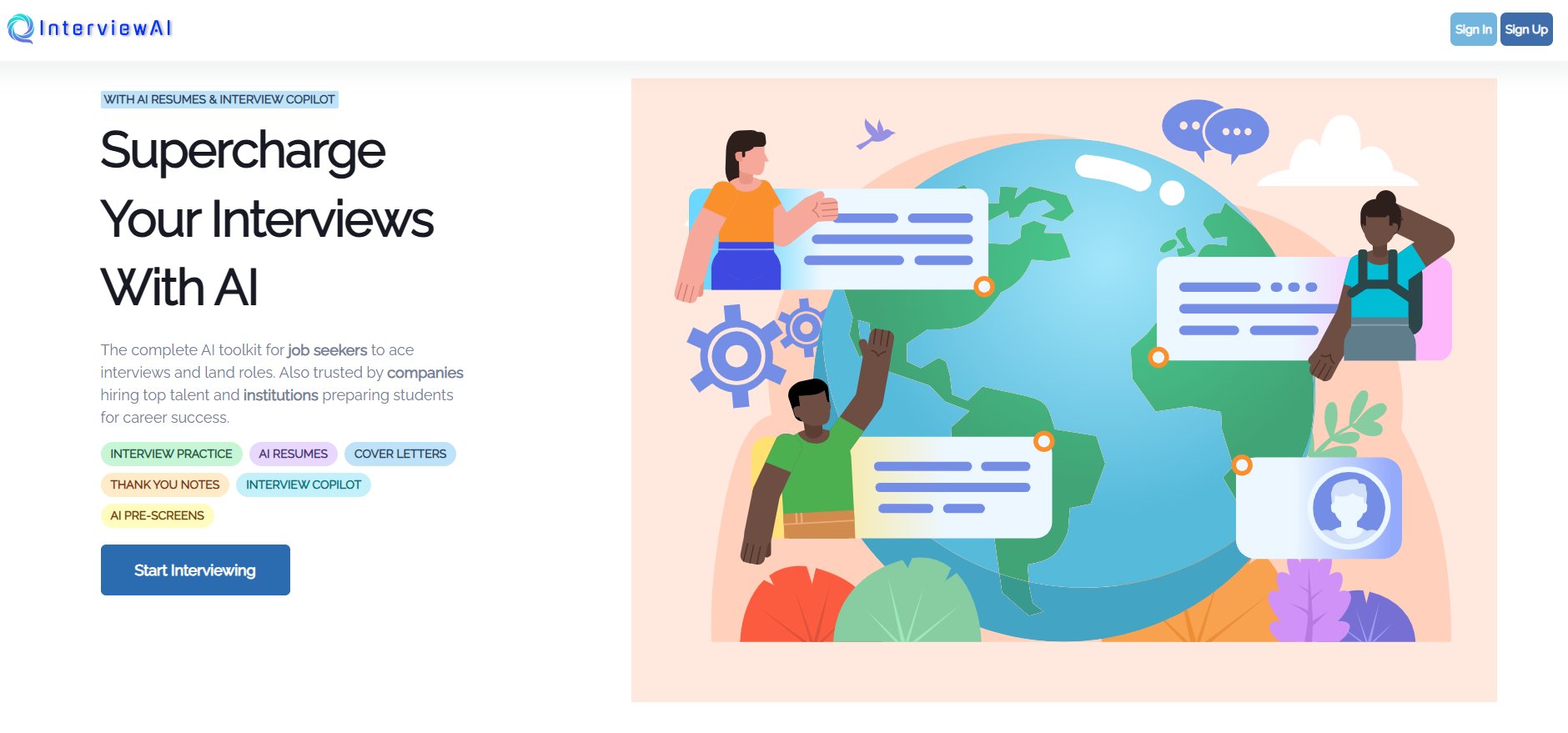
InterviewAI is primarily a specialized AI-based platform that replicates real-life job interviews across a range of different industries, including tech, finance, healthcare, marketing and so on.
This tool is built to simulate the true pressure and uncertainty of seeing in a real interview and is suitable for candidates who seek a method beyond scripted Q&A sessions.
The tool does not rely on the usual cookie-cutter questions; it changes how it asks based on your responses, the same way an experienced hiring manager ought to.
Best For: Candidates looking to practice under pressure with a human feedback factor for high-stakes/competitive interviews.
Pricing: Free plan (3 interviews/month), Premium versions available with extended limits.
What We Found After Testing This Tool:
- Its largest strength certainly lies in the voice-based interaction, emulating platforms like Zoom or Google Meet. This readies you for those remote interviews where voice tone, pacing and energy are important.
- No matter if you are applying for a Junior Marketing Job or an experienced Software Engineer Position, the AI also adjusts the complexity of questions within your field to always stay relevant.
- Specific feedback reports show that you excellently addressed & the usage of filler words, present, clarity in voice modulation, pacing and composure while answering.
- Iterations sometimes felt a little pithy, which could be something of an advantage as you train to sound professional.
- Excellent for helping boost confidence, testers found their nerves were gone after only practicing a few times with us.
Limitation: For in-depth interviews, you will need to pay for the full plan, as the free version only gives you 5 minutes per session.
2. ChatGPT (Best for Answer Brainstorming)

While ChatGPT, built on the OpenAI GPT-5 platform, may not be an interview-specific tool, it is an extremely versatile AI assistant ideal for generating well-organized and personalized responses to a wide array of interview questions.
Reliability, ability to create and hone responses with frameworks, e.g., STAR (Situation, Task, Action, Result), has made IA amongst job seekers who want well-coached, story-like replies. Also, it is one of my personal favorite AI Tools to Prepare for Interviews.
Best For: Applicants looking to prepare their answers in a professional manner, master the art of storytelling, & for common and challenging interview questions.
Pricing: Free (GPT-5 model).
What We Found After Testing This Tool:
- ChatGPT may respond in a very excellent sector, an exact approach sounding like reliable and confident upon asked systematically.
- Adding something like “Make this concise and include measurable metrics” made responses orders of magnitude more effective.
- The role-playing mode (‘Act as a hiring manager…’) turned the tool into a pretend interviewer, which I felt was unnecessary.
- Great for practicing behavioral questions and writing out your story before memorizing it.
- Lacks body language or tone feedback should be used with other tools like Yoodli.
3. Yoodli (Best for Body Language Analysis)
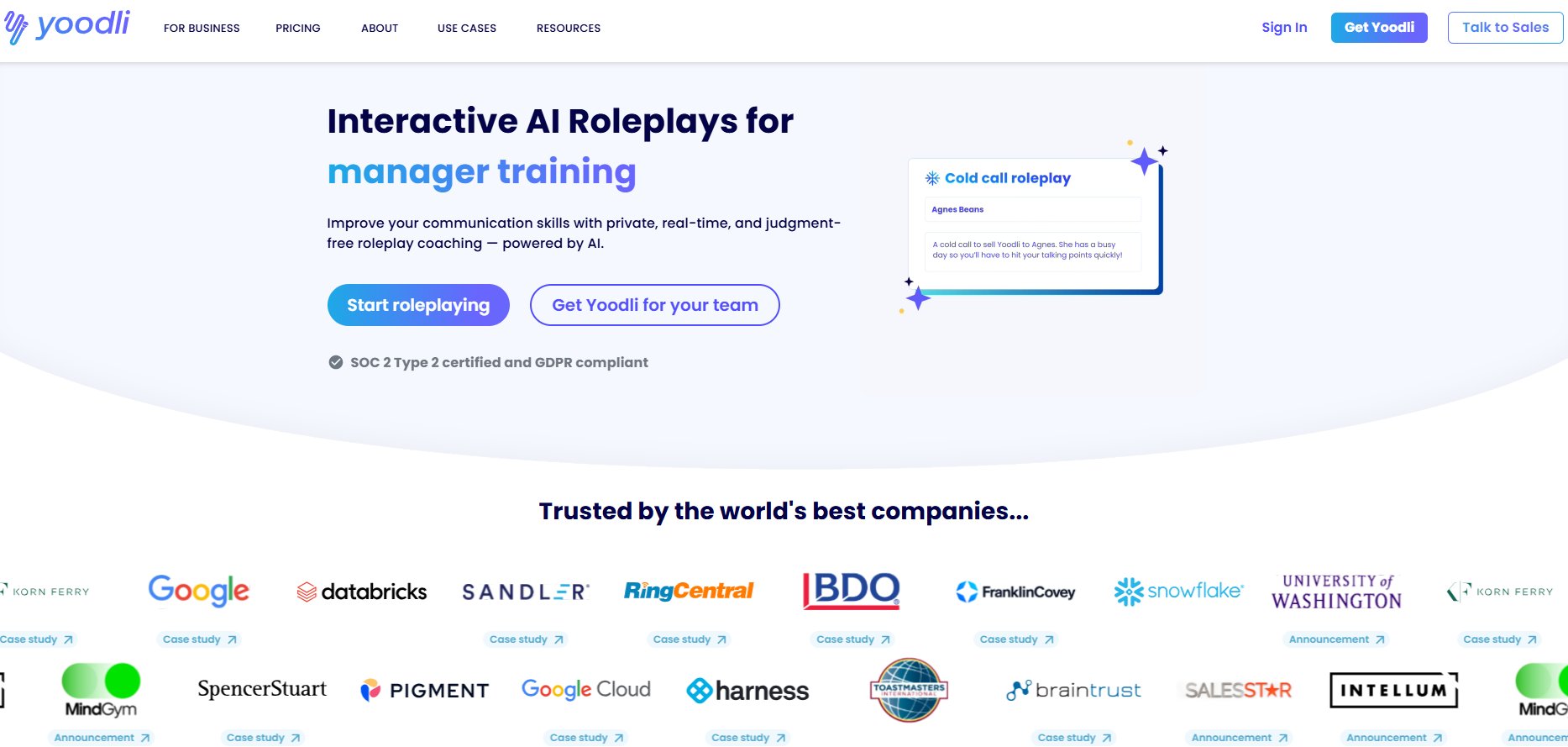
Yoodli is a smart nonverbal platform for interviews. It allows you to measure your own Stature, Wellness and Breathe: S-W-E-B (how I stand or sit down), Facial Posture & Other verbal: use of voice tone and expressions, Eye gaze with a web-cam; depends on self-confident proscenium.
Best For: Remote interview preparation, presentation skills improvement, and candidates who tend to get nervous on camera.
Pricing: $8/month (Free plan available with basic features).
What We Found After Testing This Tool:
- Well, the eye contact analysis should do wonders for video interviews, it tells you that you are breaking it up too much with looking away from the screen.
- Monitors changes in body position and can alert you if you are slouching or fidgeting.
- Monitors vocal fillers such as “um”, “like” and “you know” which can hurt credibility.
- Instant feedback helps with real-time alignment correction during repetitions.
- A few results seemed prohibitive, but that is a great thing for perfectionists.
4. Skillora (Best for Technical Interviews)
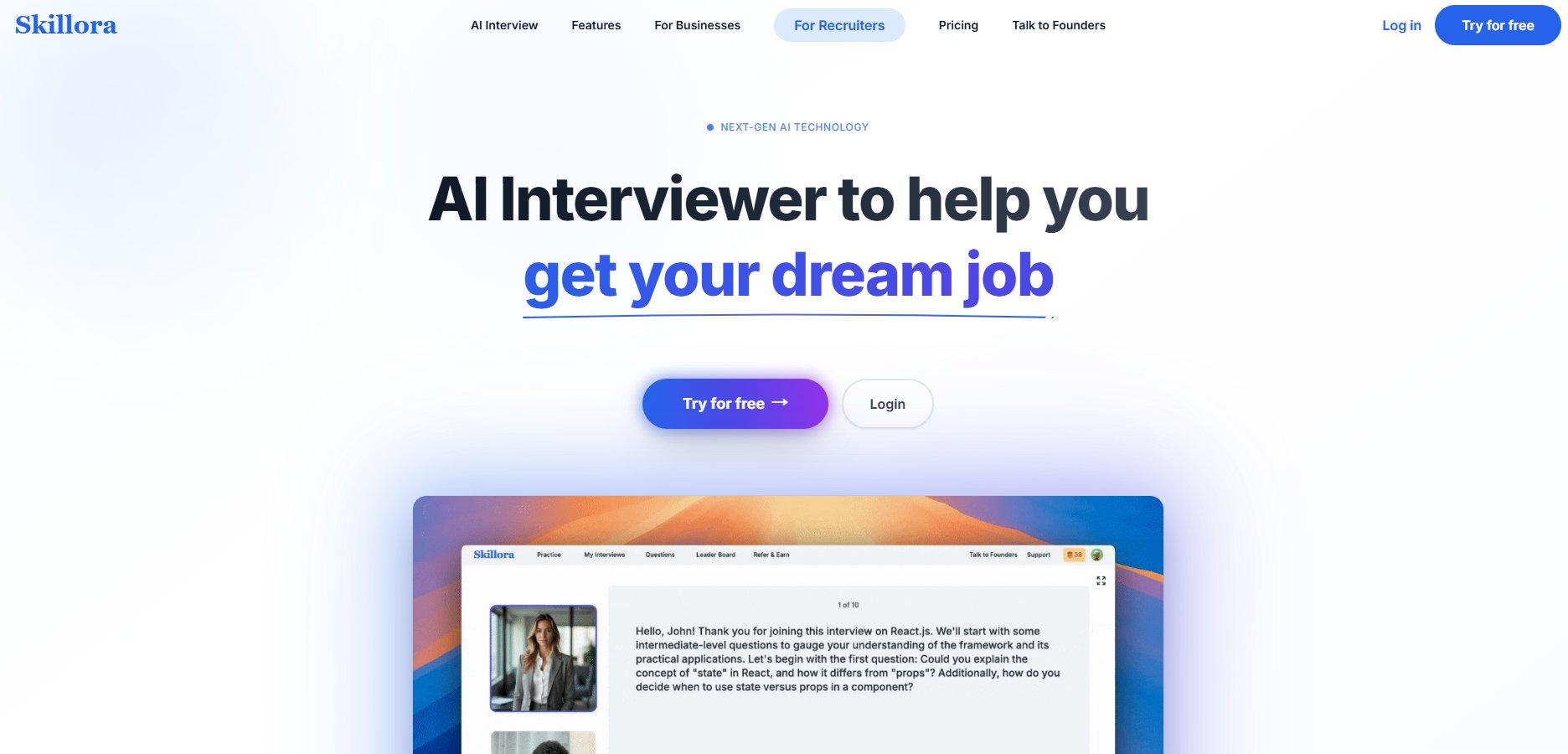
Skillora is exclusively for those candidates who are preparing for technical and coding interviews, especially at FAANG-level companies. It has auto-grading of code and problems with CodePair, where you can also conduct whiteboard interviews.
Best For: Software engineers, developers, and data scientists are preparing for algorithm-heavy technical interviews.
Pricing: Free daily challenges; Pro plans start at $15/month.
What We Found After Testing This Tool:
- AI grading system checks not only correctness but also time complexity and code efficiency.
- Whiteboard simulation mode works like a live coding interview, and you will be required to describe your thought process as you code.
- The best suggestions after each challenge enhanced the student’s problem-solving strategy.
- Provides a gaming experience that makes regular practice engaging.
- Good for technical questions, but doesn’t cover any behavioural side of things – would recommend going along with another tool.
5. Big Interview (Best for Structured Learning)
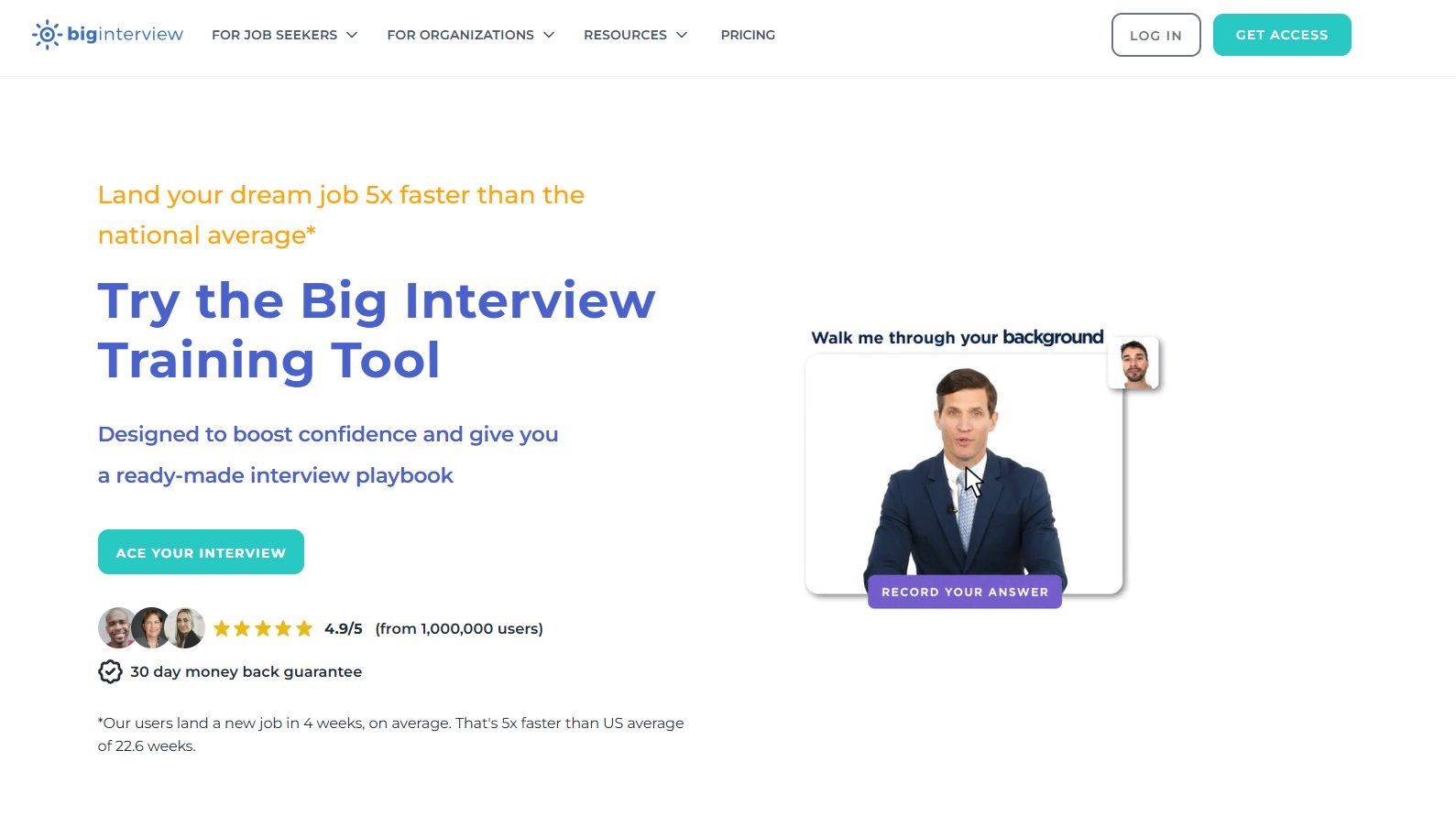
Big Interview is an integrated interview training tool that combines mock interviews and AI with learning modules. It targets candidates coming out of college as well as career changers through the provision of industry-specific roadmaps.
Best For: Job seekers who are interested in an entire learning course, instead of just the questions and answers.
Pricing: Free trial available; Paid plans start at $99/month.
What We Found After Testing This Tool:
- Video lessons leveraging AI are available that tackle topics from resume tailoring to salary negotiation.
- Highly targeted through industry-specific training plans (eg, switching to data science).
- AI Questions and Human Feedback options allow for another layer of depth when practicing with mock interviews.
- The limits of content are extensive, which should indicate that you plan to spend at least weeks preparing for the exam.
6. Mockmate (Best for Quick Drills)
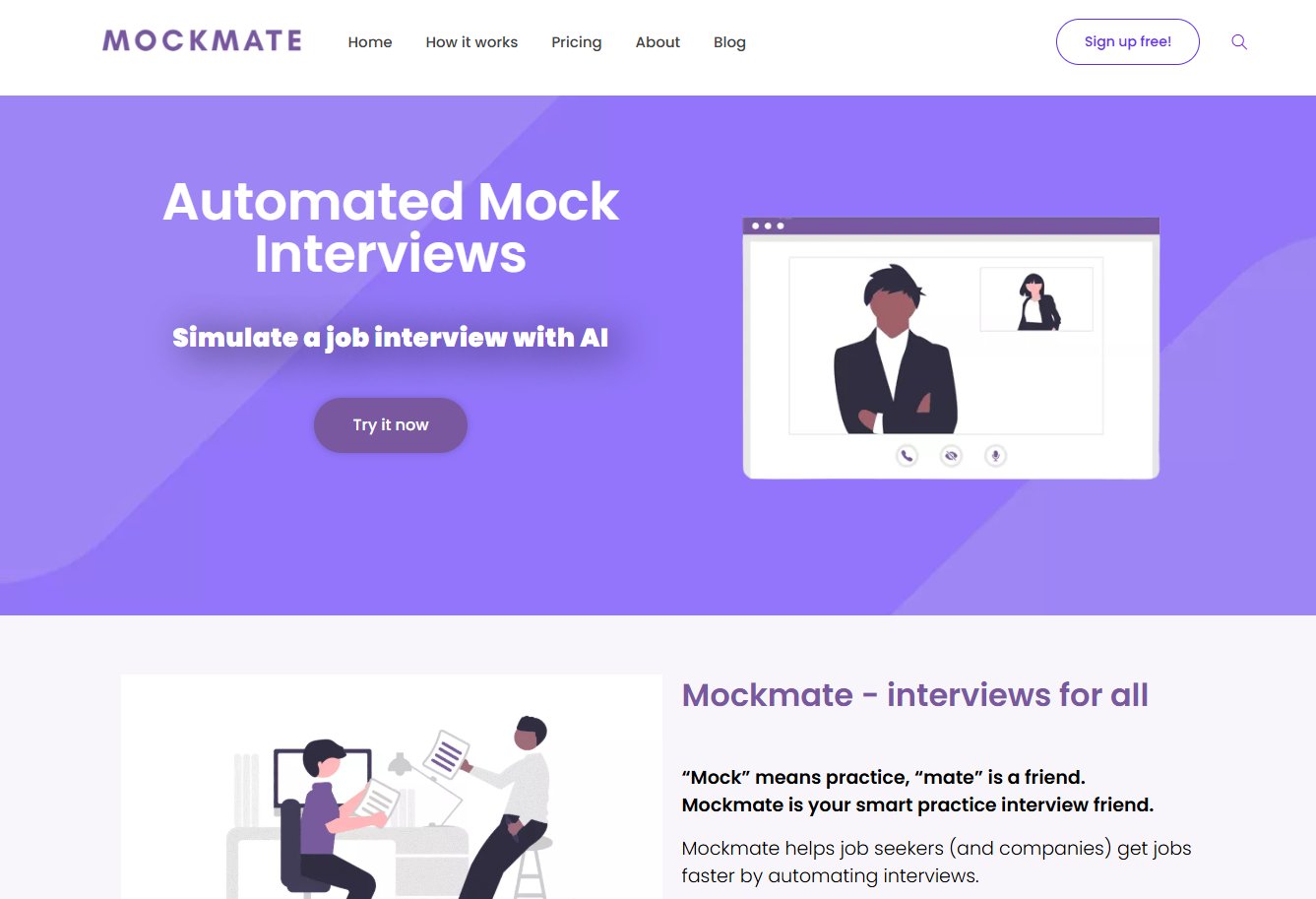
Mockmate focuses on interviews in a realistic environment with an AI-based interview simulator. When you have little time before an actual interview, it is best for quick preparation.
Best For: Candidates who want short, high-intensity practice sessions to sharpen their answers quickly.
Pricing: Free plan available; Paid plans at $29/month.
What We Found After Testing This Tool:
- Perfect for refreshing your mind before the real interview, the 1-minute “flash interview” mode.
- Keeps track of how far you have come and where you’re getting better at answering more clearly.
- Good for general interview questions, tailored less specifically than the larger platforms.
- Quick format reduces overthinking and makes responses more natural.
7. Interview Warmup (by Google) – Best for Quick Industry-Specific Drills
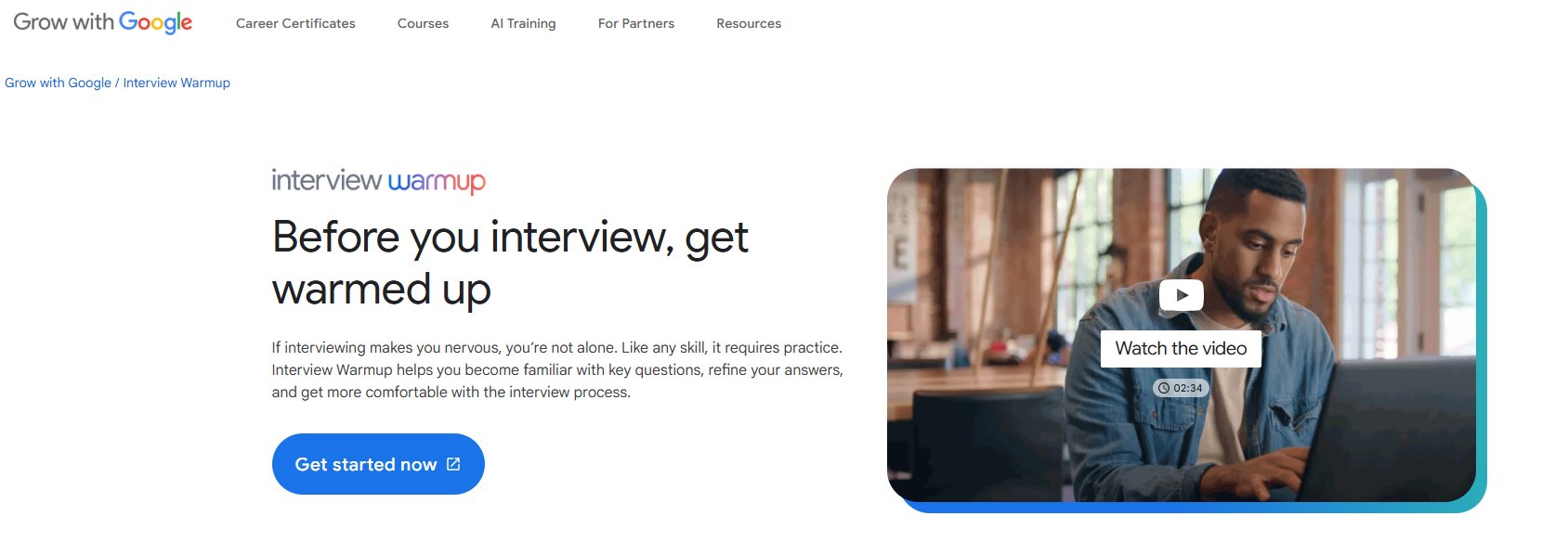
Google Careers has created Interview Warmup, a free AI tool to provide industry-specific interview practice with instant AI feedback. The focus is on helping candidates prepare for jobs in tech, retail and healthcare.
Best For: Job seekers who want a trusted, industry-focused practice without paying for premium tools.
Pricing: Completely free.
What We Found After Testing This Tool:
- Specific question banks for more than 5 industries were made available, which resulted in a highly relevant practice.
- AI analysis highlights weak phrases and gives you the opportunity to strengthen them.
- Very useful for practicing voice delivery without the pressure of a live audience.
- No video analysis or more detailed behavioral training, good for polishing written replies
8. Pramp – Best for Peer-to-Peer Mock Interviews
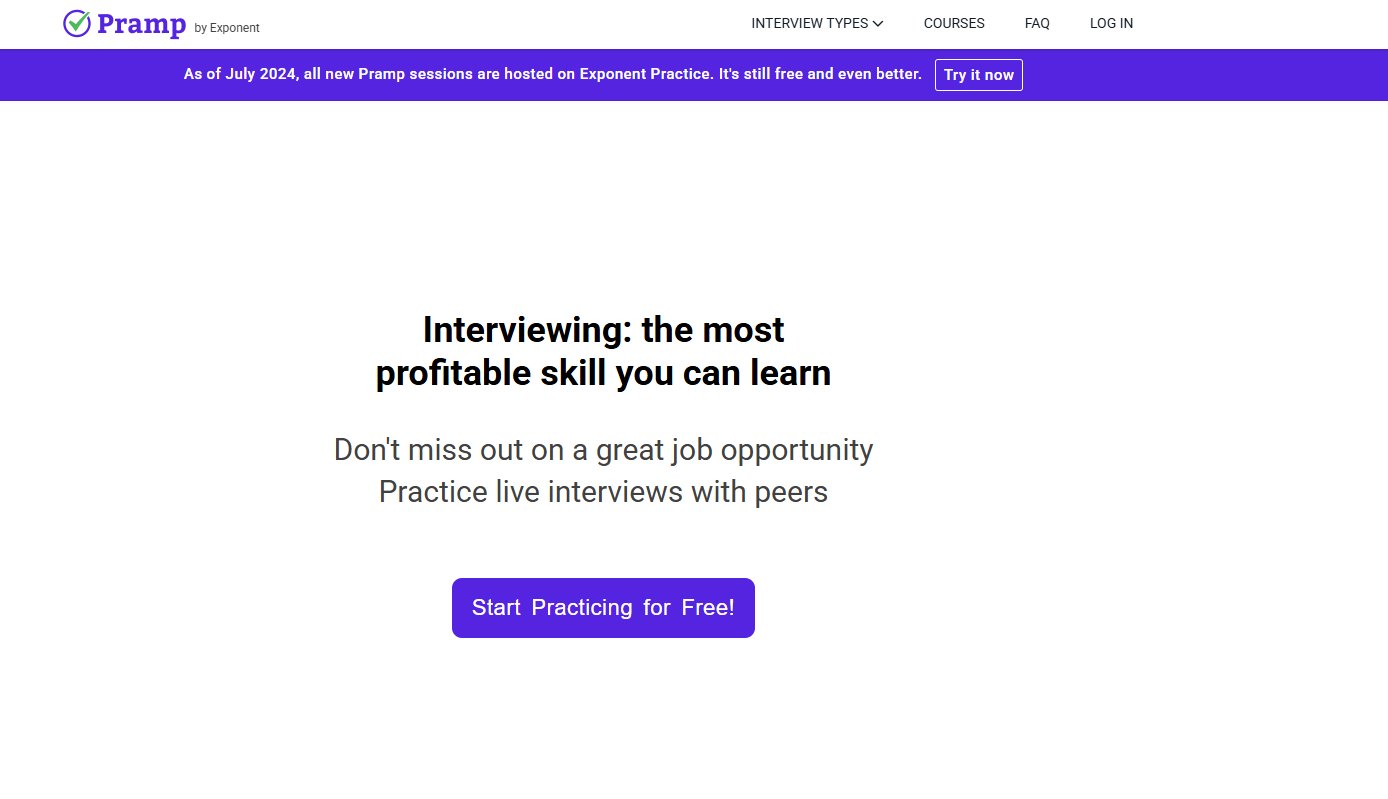
Pramp is a community platform that allows you to practice live mock interviews with real people. Tech job seekers like it too, wanting human-esque practice rather than AI-only simulations.
Best For: Candidates looking for real-time, interactive feedback and to be involved both in giving and receiving interviews.
Pricing: Free (community-based).
What We Found After Testing This Tool:
- A peer matching system allows you to practice with candidates from all over the world.
- Switching back and forth from interviewer to interviewee gives you a better understanding of the hiring process.
- This results in more relevance in the comments that you get than if it were AI commenting alone.
- Scheduling is based on the availability of the participant; it is not instant like many AI tools.
📊 Comparison Table: Free AI Interview Tools
| Tool | Best For | Free Limits | Unique Feature |
|---|---|---|---|
| InterviewAI | Mock Interviews | 3/month | Voice interaction |
| ChatGPT | Answer Ideas | Unlimited | STAR refinement |
| Yoodli | Body Language | Unlimited | Webcam analysis |
| Skillora | Tech Interviews | 1/day | Code grading |
| Big Interview | Courses | 7-day trial | Learning paths |
| Mockmate | Speed Drills | Unlimited | Progress tracking |
| Interview Warmup | Industry Drills | Unlimited | Google-developed |
| Pramp | Human Practice | Unlimited | Peer feedback |
How to Use AI Tools to Prepare for Different Type of Interviews
1. Behavioral Interviews
- AI Prompt: “Generate 5 STAR method answers for ‘Describe a conflict at work’.”
- Tool: ChatGPT + InterviewAI
2. Technical Interviews
- AI Prompt: *”Ask me 3 system design questions for mid-level engineers.”*
- Tool: Skillora
3. HR Screening Calls
- AI Prompt: *”Simulate a 15-minute HR call about salary expectations.”*
- Tool: Mockmate
Pro Tips to Maximize AI Prep
- Record Yourself – Use Yoodli to spot nervous habits.
- Train AI on Job Descriptions – Paste the JD for tailored practice.
- Combine Tools – Glassdoor for questions + ChatGPT for answers.
Common AI Interview Prep Mistakes
- Over-relying on scripts – AI should inspire, not dictate.
- Ignoring nonverbal feedback – Practice on camera!
- Skipping company research – Glassdoor AI is your secret weapon.
(Companies like HireVue already use AI to analyze candidates.)
People Also Ask: FAQ
1. Can AI really help me pass interviews?
Yes! Research shows that candidates are 77% more likely to succeed when using AI preparation tools (LinkedIn, 2025).
2. Are these tools safe for sensitive info?
Do not disclose confidential information – in the real world, you would use generic cases.
3. Which AI is best for FAANG interviews?
Skillora (coding) + InterviewAI (behavioral) = killer combo.
4. How accurate is AI feedback?
~85% for speech/body language; the human specimen is always your best bet.
5. Can AI help with salary negotiation?
Yes! There are company-specific negotiation scripts in Glassdoor AI.
6. Can I trust peer feedback from Pramp?
Yes! The recipient is motivated to leave specific feedback in order to receive their own. Look at partners with 4+ star ratings.
So, that’s all we have for you about top AI tools that you can use to prepare for your interviews. We hope that this guide has helped you. For more info, comment below. Meanwhile, if you are a Amazon product review writer and search for some AI tool to write review, check this list.